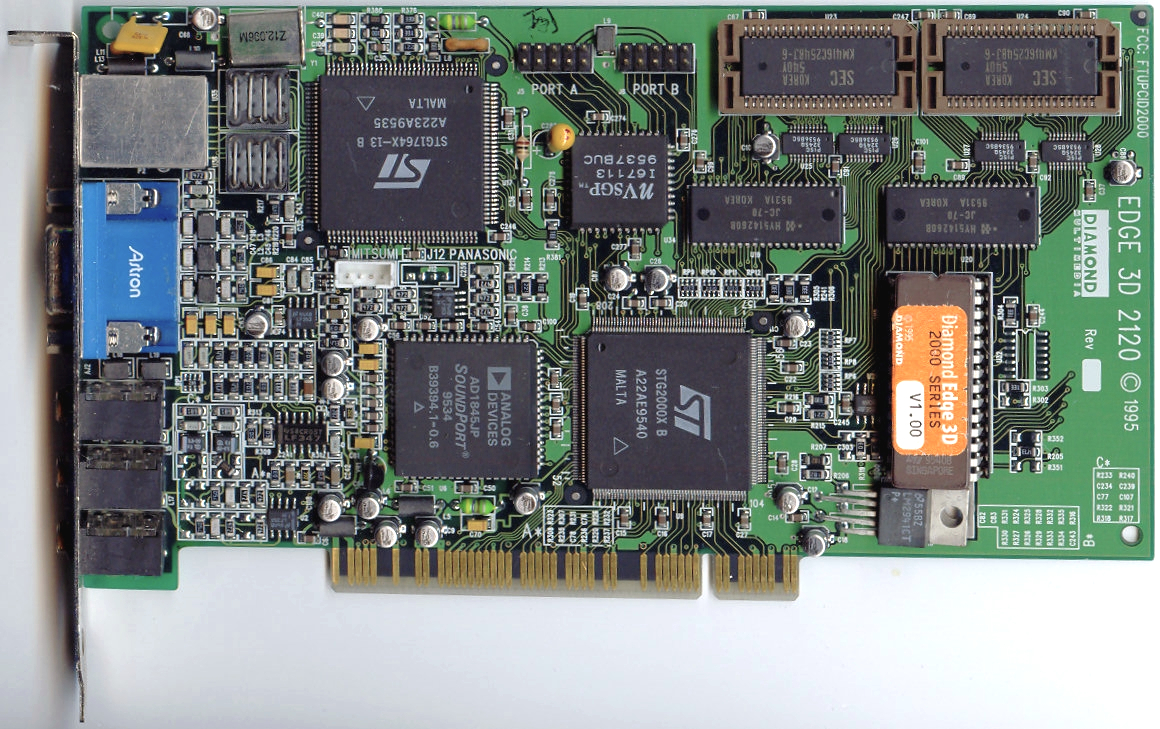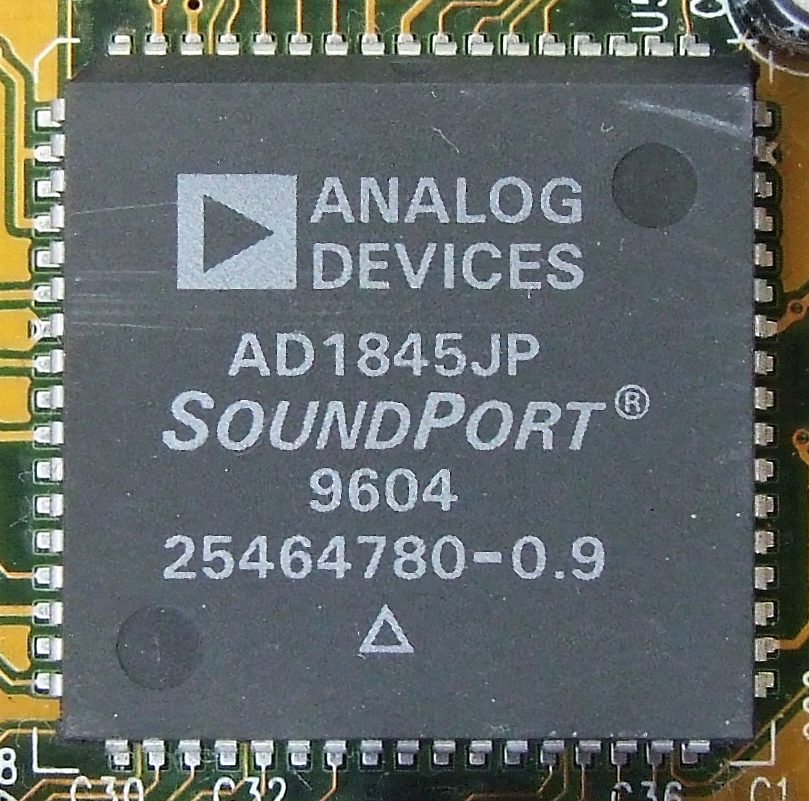First post, by digger
- Rank
- Oldbie
Okay, so the AIL3 Miles protected mode driver pack (shared in this old thread post), as used in many protected mode DOS games, includes the driver files NVDIG.DIG and NVMPU.MDI, which are respectively the digital audio and MIDI drivers for NVIDA NV1 audio/video cards, such as the Diamond Edge 3D. (As an aside, I used to own one, which I gave away years ago, and these days those things seem to be going on eBay for over €400, ouch...)
Anyway... This, to my knowledge, makes the NVIDA NV1 the only PCI-based sound card that was ever supported natively by any DOS games, without requiring any kind of Sound Blaster emulation. (By all means, please correct me if I'm wrong. I'd love to hear/read otherwise!)
So after digging a bit further (hey, I've got to honor my nickname 😉), I found the following pictures on Wikipedia and Wikimedia, which helped me identify the type of sound chip that is on these audio/video combo cards.


So I googled a bit further, and found the datasheet for the AD1845JP Soundport from Analog Devices. And to my surprise, it stated that this was designed to be used in ISA and EISA devices. (By the way, I've never heard of any EISA sound card and I find the possibility of such a beast existing in the wild fascinating in its own right, but that's something for another topic.)
So as far as I've understood, it's a DAC (no FM synthesis integrated or anything), which has a direct 8-bit interface for ISA and EISA buses. It also supports DMA. All in all, it seems like a typical DAC to build a Sound Blaster and/or WSS ISA clone card around.
So what the heck is such a chip then doing on a PCI card? And how does it work? My best guess would be that the NVIDIA NV1 chipset included some kind of glue logic to bridge the 8-bit ISA interface on the chip with the PCI bus, including some kind of translation between Intel 8237 compatible third-party DMA (as expected by the chip) and first-party DMA as offered through PCI bus mastering.
Obviously, there is no way such a concoction could be compatible with any ISA cards, even ones based on the same AD1845JP chip. Therefore either software emulation or special drivers would be required, the latter of which is apparently exactly what these NVDIG.DIG and NVMPU.MDI are.
Now, although NV1-based audio/video cards such as the Diamond Edge 3D are very rare these days, the AD1845JP Soundport chip is not, and can still be ordered on-line very cheaply.
Over the years, there have been repeated inquiries by people on this forum about the feasibility of creating a PCI sound card with DOS sound compatibility, so classic DOS games could be enjoyed with sound even on more recent (post-ISA) PCs. Generally the answer was that this wasn't possible, due to the incompatibility with ISA DMA, and the obstacles to software-based Sound Blaster emulation (doesn't work in protected mode, doesn't support more modern motherboard chipsets, etc).
But am I wrong in speculating that a newly designed PCI card with an AD1845JP chip, wired up in the same way as it was on the NVIDA NV1, and paired with a dedicated (real) OPL3 chip, could be a workable solution for such newer PCs after all?
- For real mode games, a software-based Sound Blaster emulator could be written that would work with such a card.
- Direct I/O mode (non-DMA) Sound Blaster hardware compatibility could be implemented in hardware, allowing a small number of games to work that way out of the box. (A minority of games used the Sound Blaster without DMA.)
- A sizable chunk of protected mode DOS games supported the AIL3 Miles drivers, and for such a card, the aforementioned NVDIG.DIG and NVMPU.MDI could be used.
With all of that combined, although you'd still not be able to support 100% of DOS games that supported ISA sound cards, my guess is you'd get quite far towards that goal.
To be clear, I'm not advocating cloning an entire NVIDIA NV1 audio/video card. It's just compatibility with the audio (PCM) part of that card that I think is interesting, especially when combined with an OPL3 chip and MPU-401 hardware compatibility, with both an internal Waveblaster-compatible connector and an external DA-15 joystick/MIDI port.
(Speaking of game ports, it might be interesting to know that the the NVIDIA NV1 chipset also had game ports for Sega Saturn controllers, but that's not something that would add much value to this envisioned PCI sound card, I think.)
I know, this "getting DOS games to work natively with sound support in post-ISA PCs" obsession is getting a bit out of hand, but I'm apparently not the only one still on the lookout for that Holy Grail. (Or am I?) 😅
Okay, commence the "punching holes in my crazy idea" phase in 3...2...1... Go!